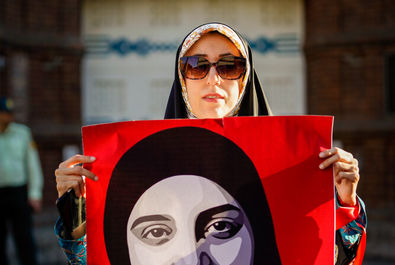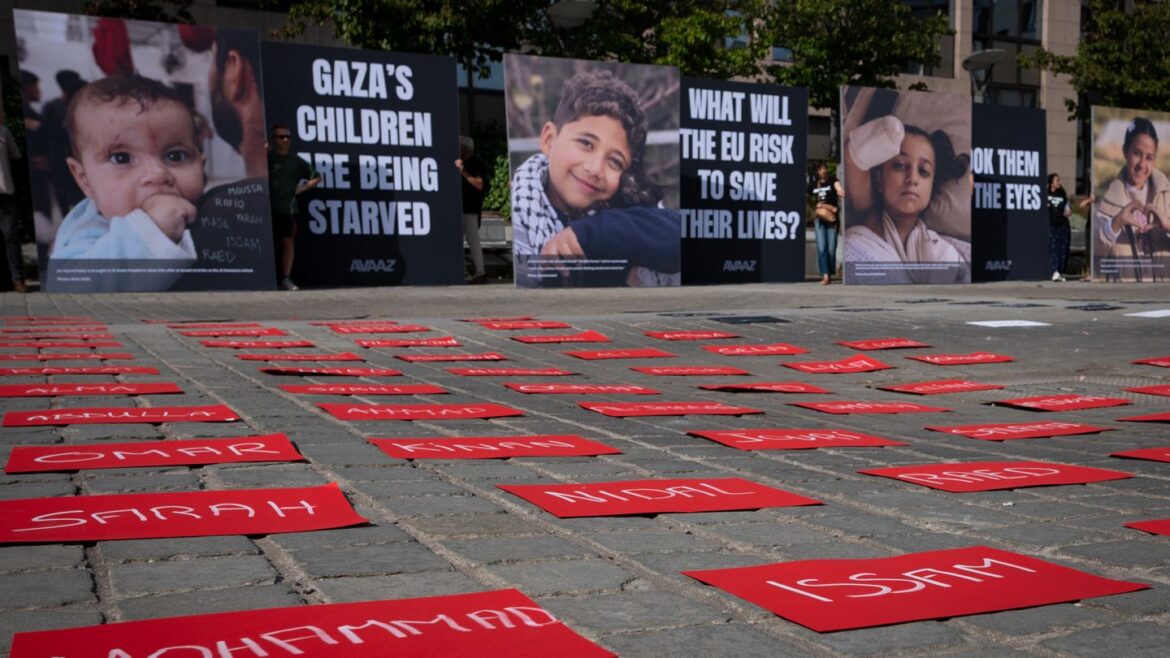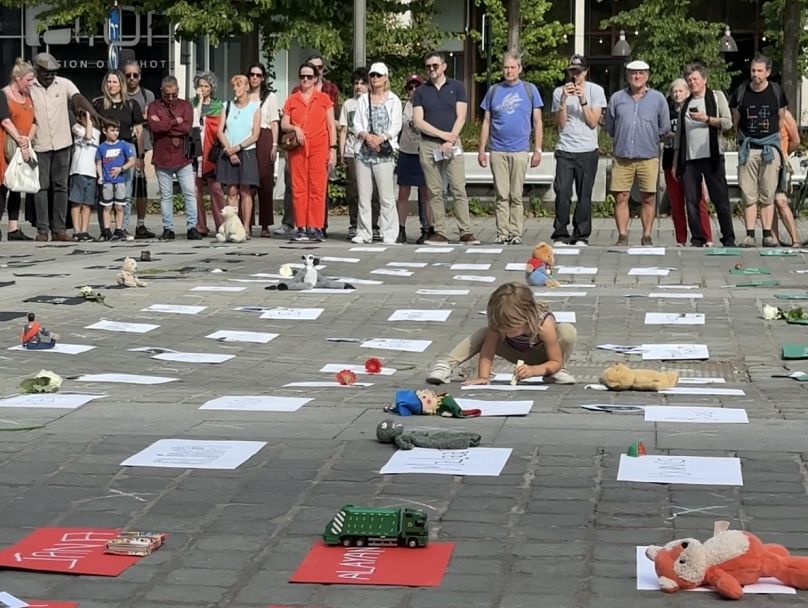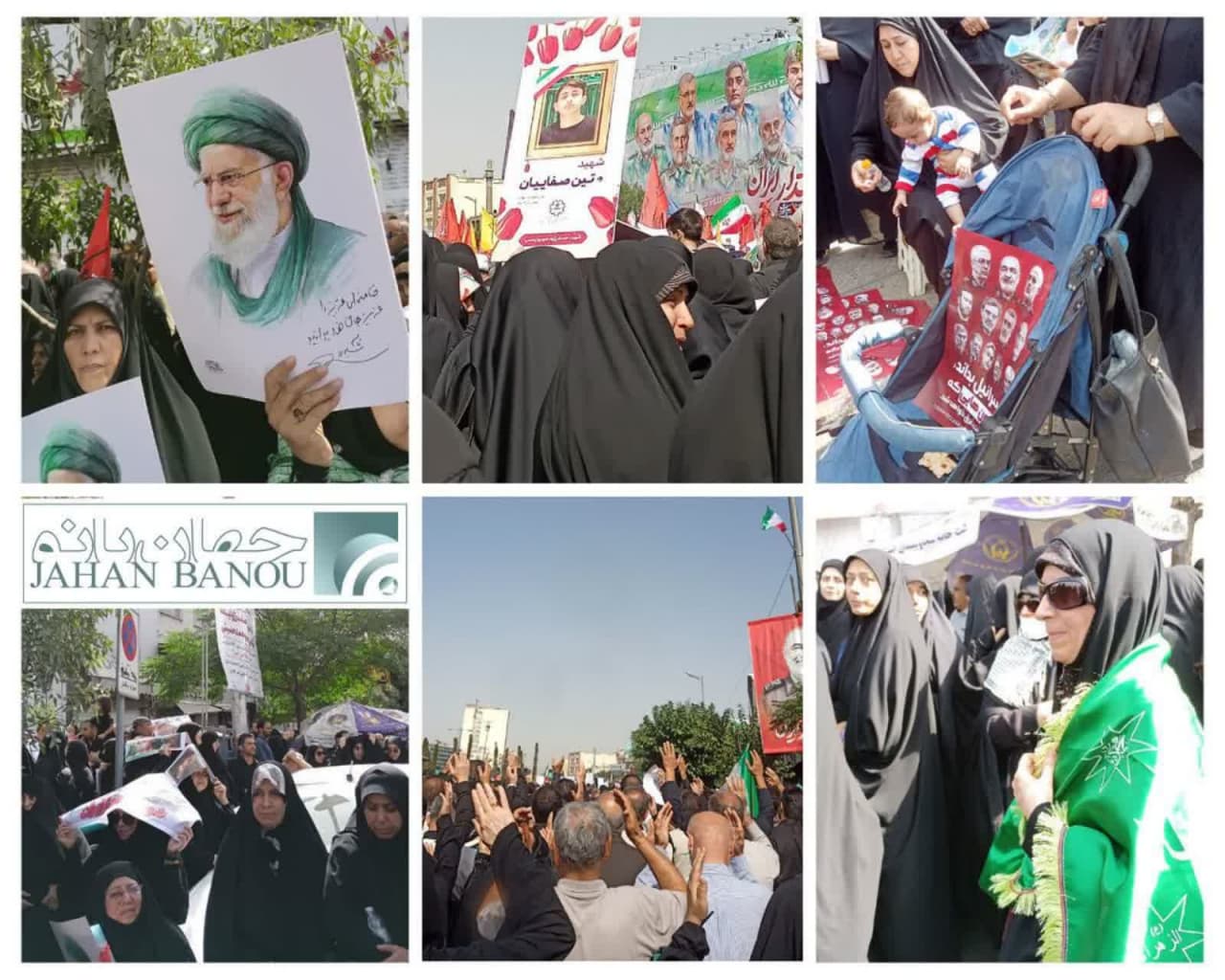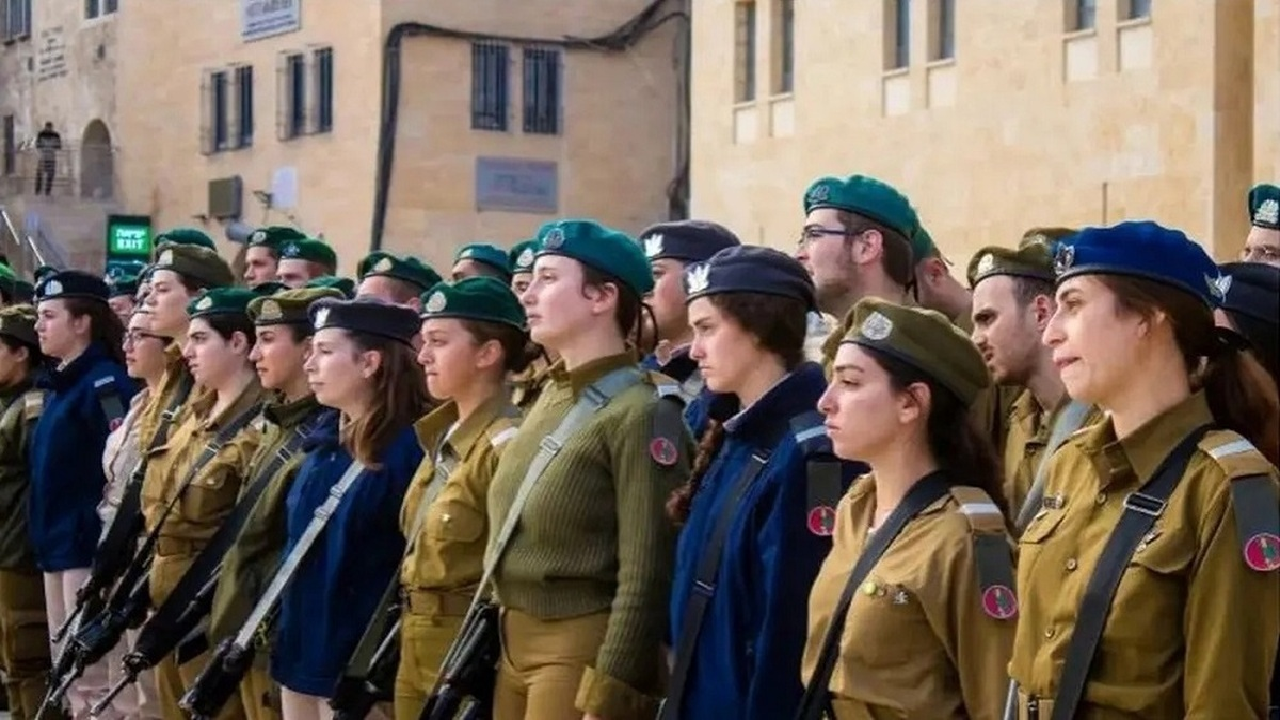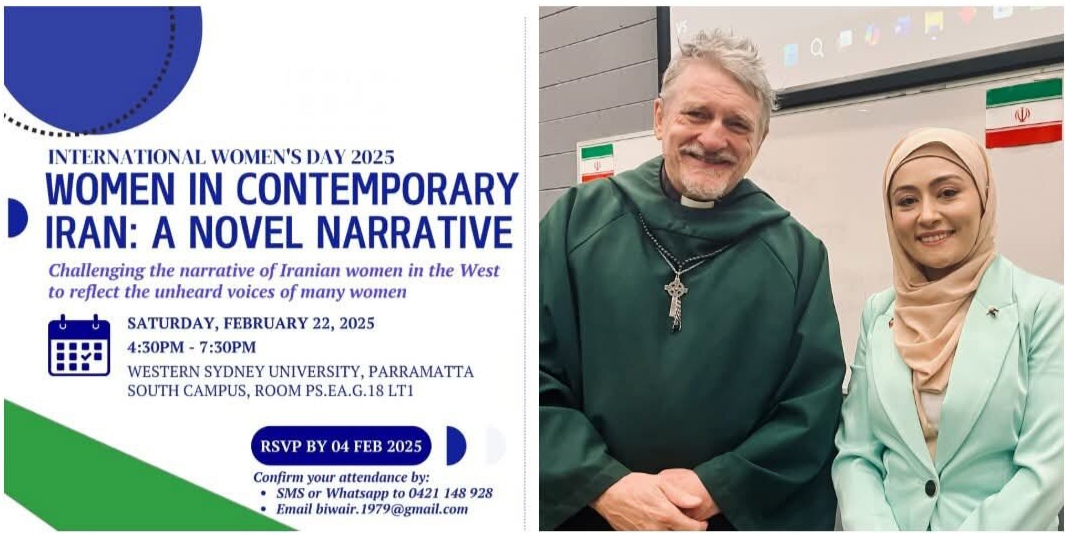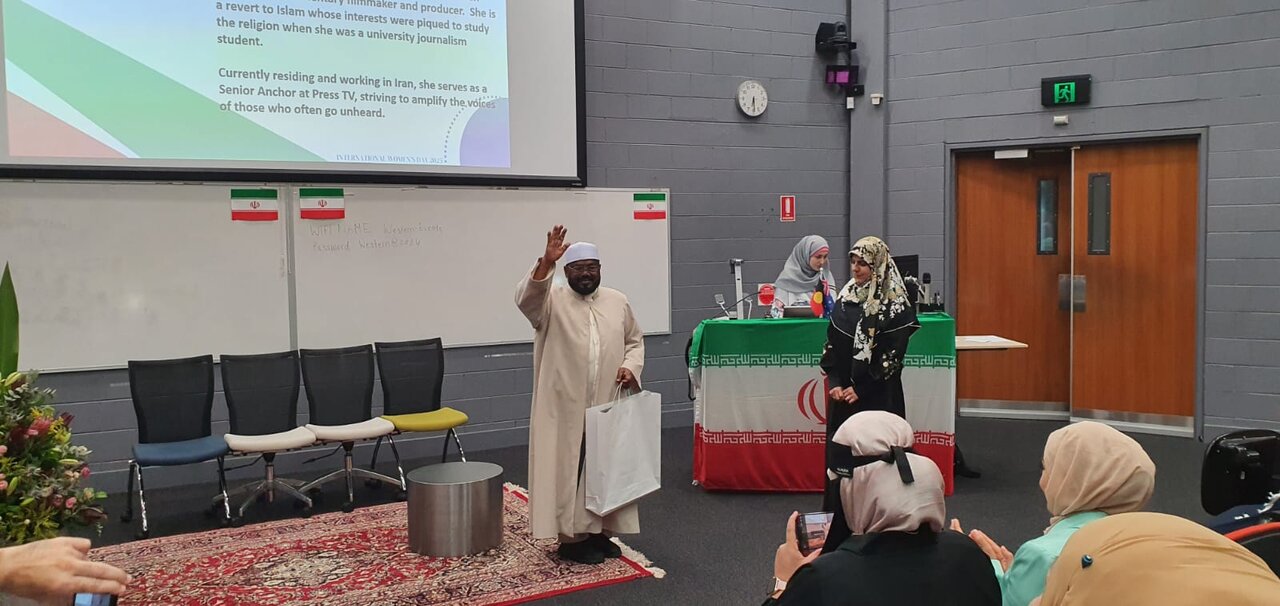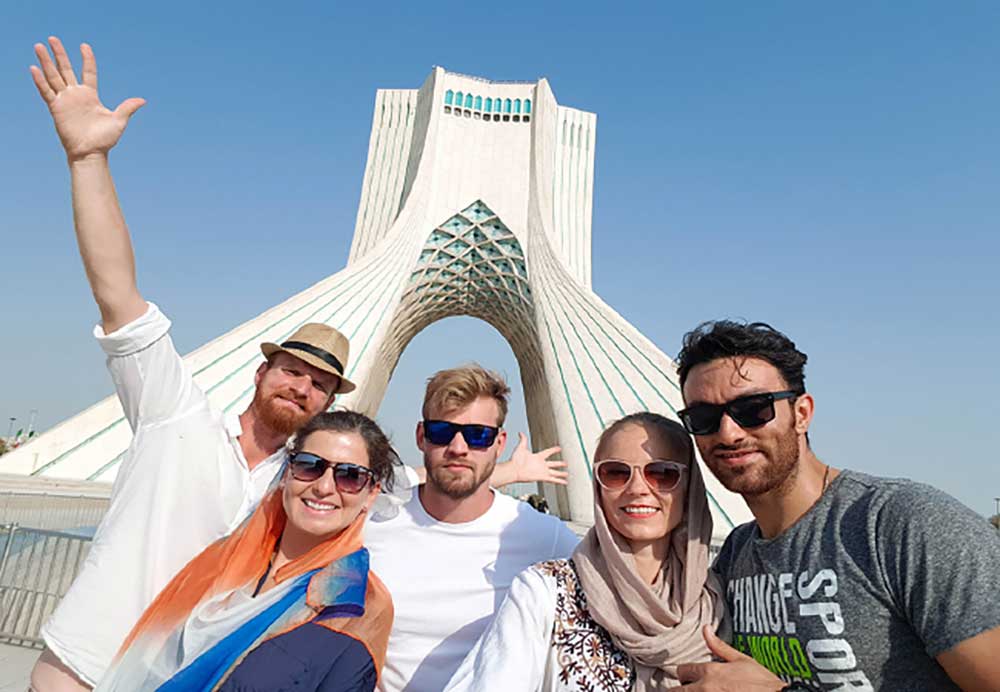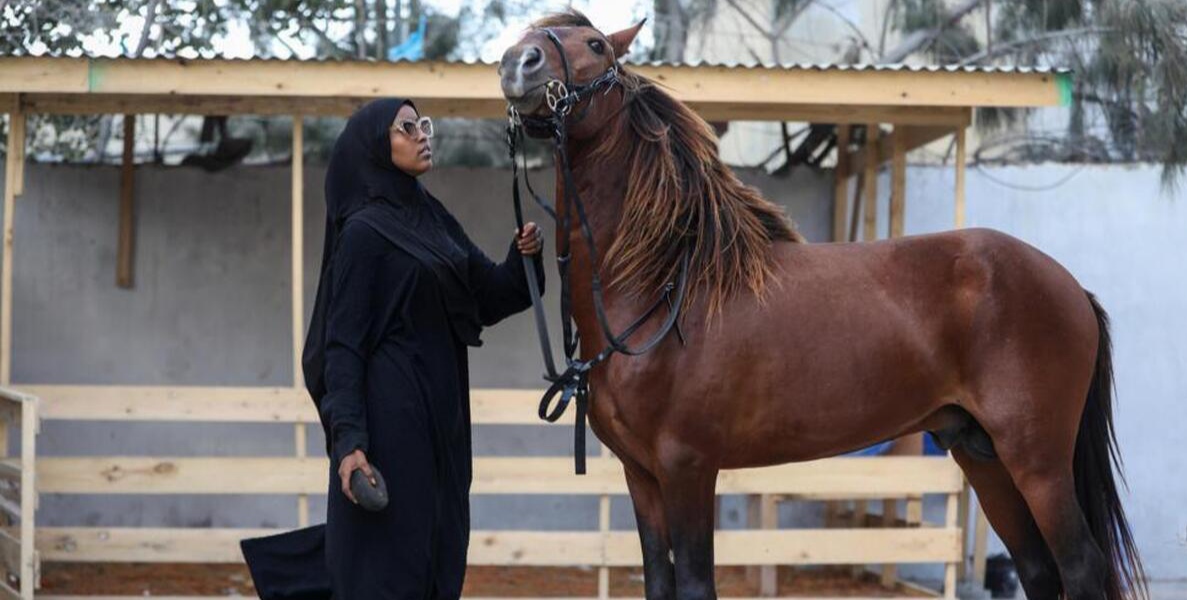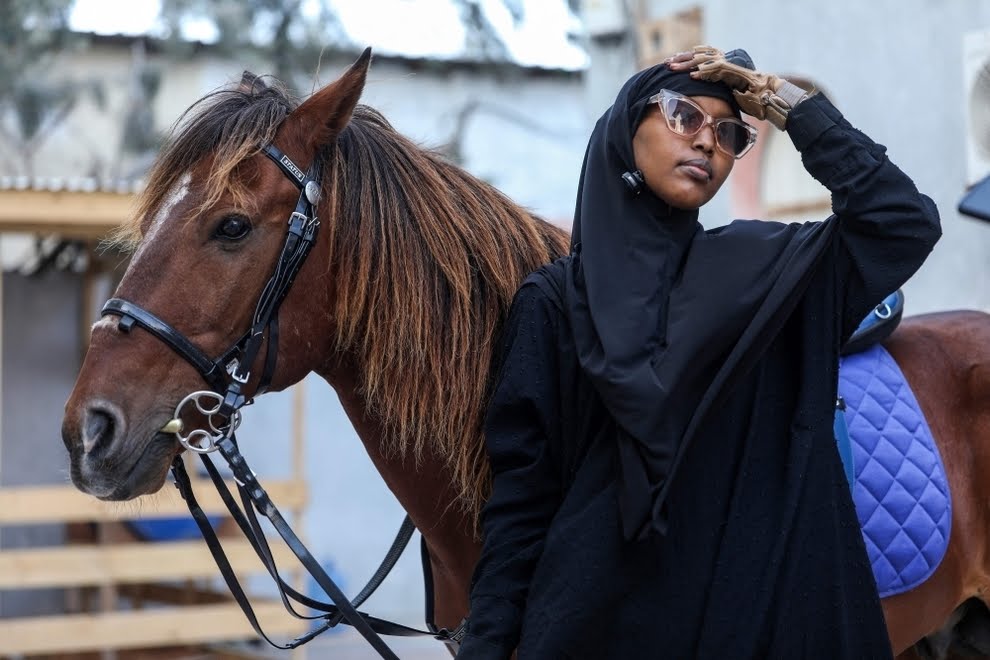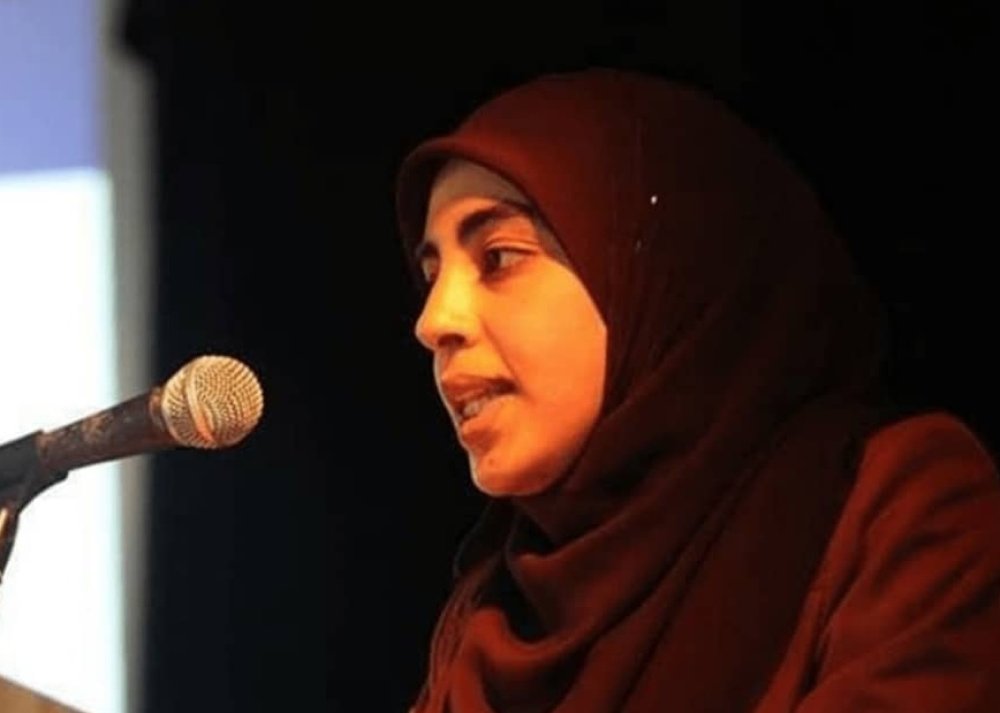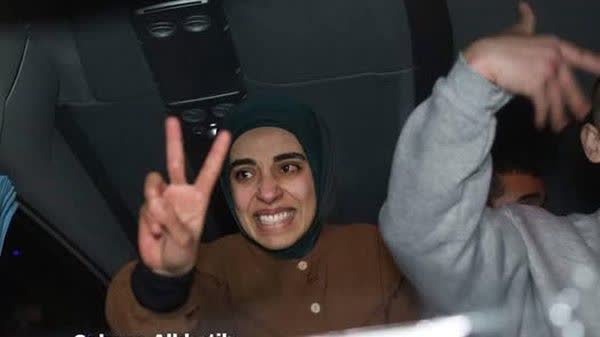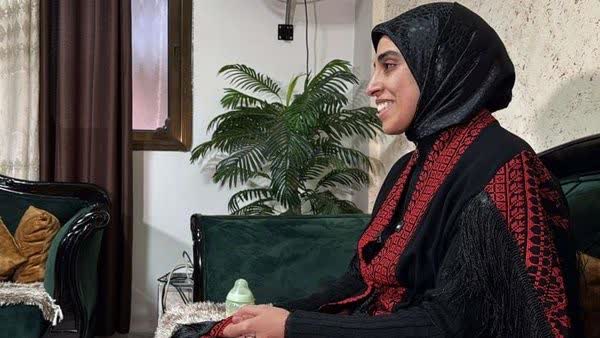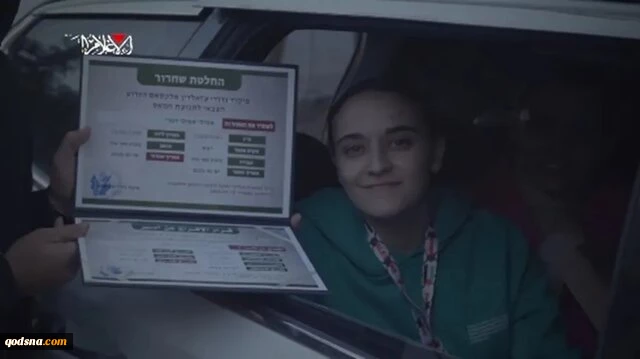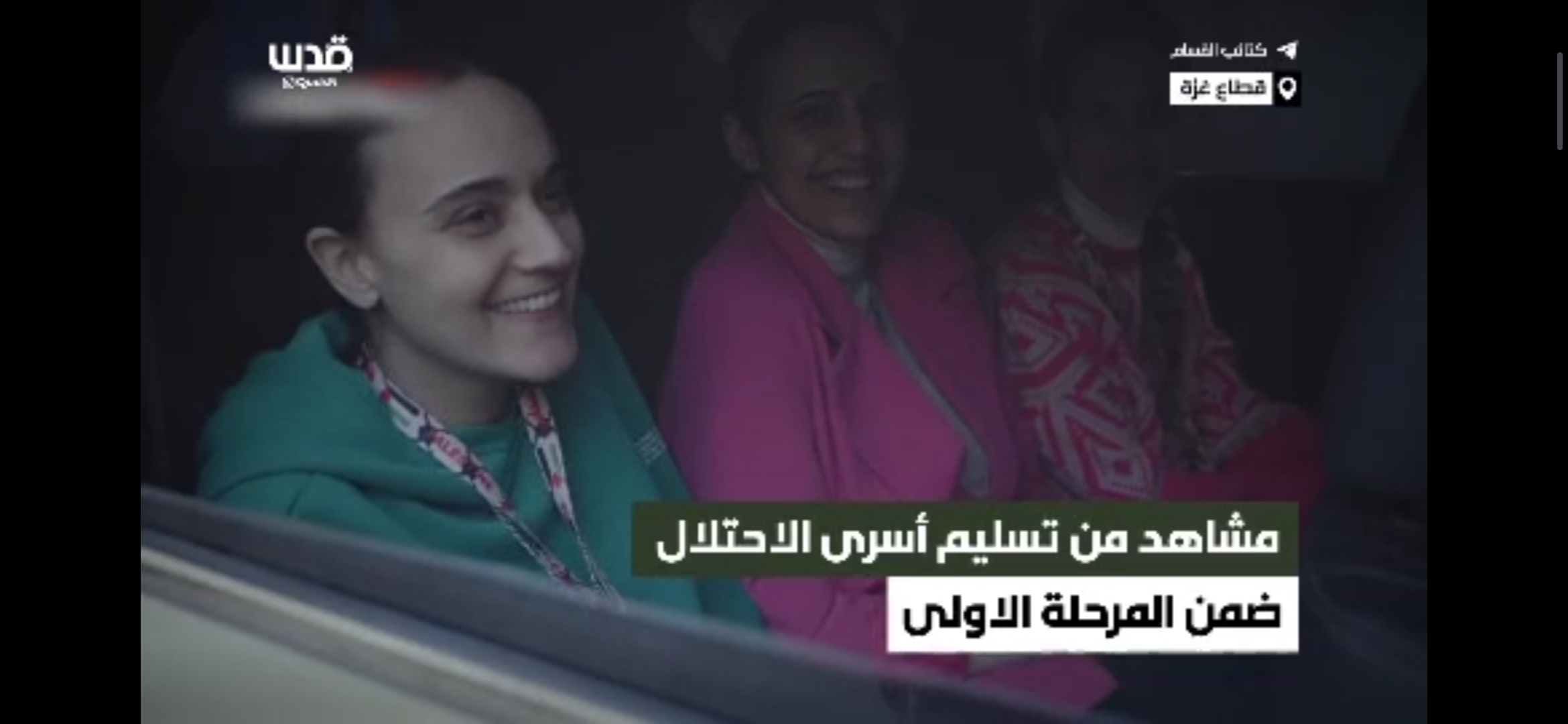On the eve of the trial for Iranian student and pro-Palestinian activist Mahdieh Esfandiari, students, artists, and cultural figures gathered Tuesday evening on Tehran’s Nofel Loshato Street, across from the French Embassy, chanting “Free Iran’s daughter!” and demanding her release. The protest came just hours before news broke that Esfandiari had been granted conditional release by French authorities after months in solitary confinement.
Emboldened Voices and Raised Signs
The late afternoon sun still shone as a crowd formed in front of the embassy’s stone façade. Placards were raised high: “Free Mahdieh Now” and “Supporting Palestine is not a crime.”
One student stood silently with a strip of red tape over her mouth.
“I want to show that free speech in France is just a slogan,” she said. “If it were real, Mahdieh wouldn’t be jailed for defending the children of Gaza.”
Chants grew louder: “Mahdieh is not alone! France, have shame! Free Mahdieh!” Nearby, a young artist painted Mahdieh’s face in watercolor.
“With these colors,” she said, “I want to shout that our daughter is in captivity. We must not stay silent.”
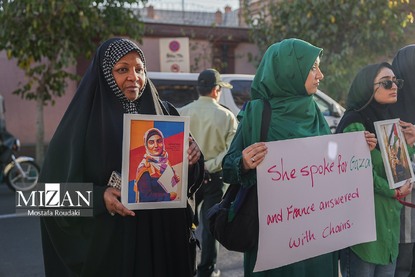
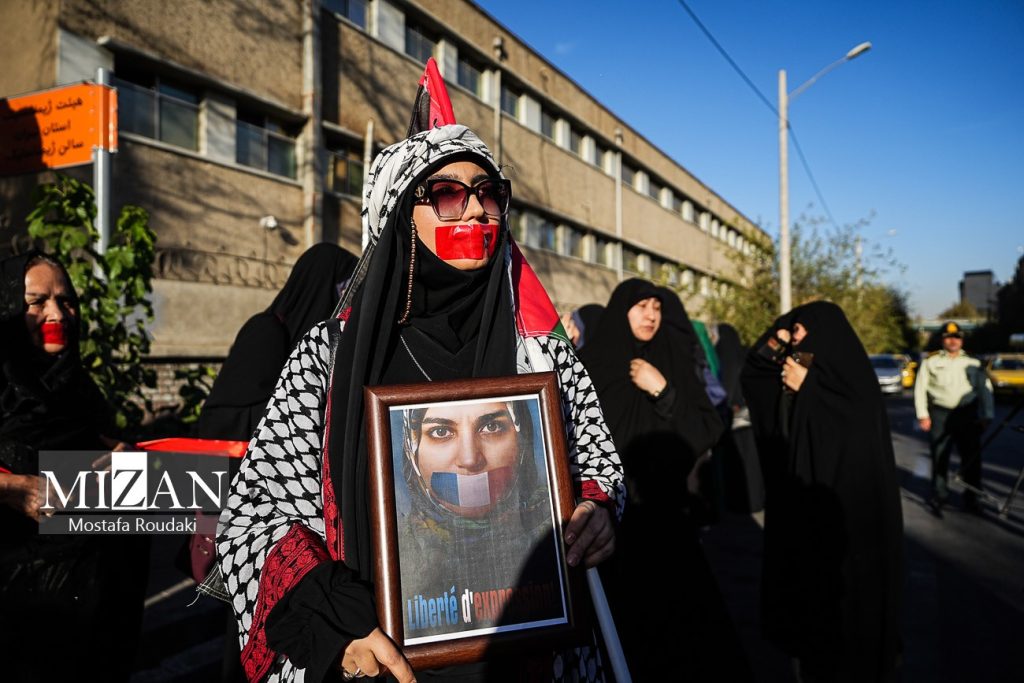
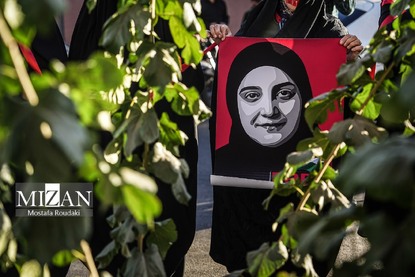
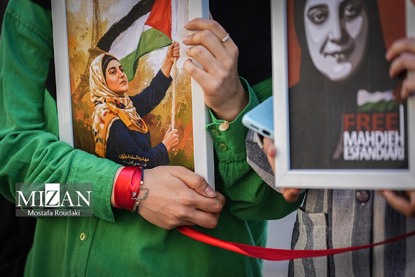
Familiar Faces and Emotional Voices
Among the demonstrators were well-known media and cultural figures, including Marzieh Hashemi, secretary of the Ammar Popular Film Festival, who listened to the chants with a solemn expression.
“Mahdieh has been held in solitary confinement for seven months without charge,” Hashemi said. “Is defending the oppressed now a crime?”
Tears welled in another student’s eyes as she cried:
“Two hundred and thirty-five days in isolation for one sentence!”
Placards told their own stories: “In the cradle of democracy, supporting Palestine means prison?” and “France has jailed the voice of freedom.”
At one corner, a group of female artists painted the Eiffel Tower in black, adding a Star of David in its center and writing beneath it: “Freedom has failed.”
Statement and the News That Followed
As dusk fell, a joint declaration from student organizations was read aloud:
“We consider the French government’s detention of Mahdieh Esfandiari a clear violation of freedom of expression and demand her unconditional release.”
The rally ended with the cry “Mahdieh must be freed!” echoing across the street.
Only later that night did reports emerge from Paris that Mahdieh Esfandiari had been granted conditional release, a development that brought relief but not closure to her supporters.
For the young faces leaving Nofel Loshato Street, the message was clear: even with her release, Mahdieh’s story — and what she stands for — is far from over.
Report by Mahta sanei


